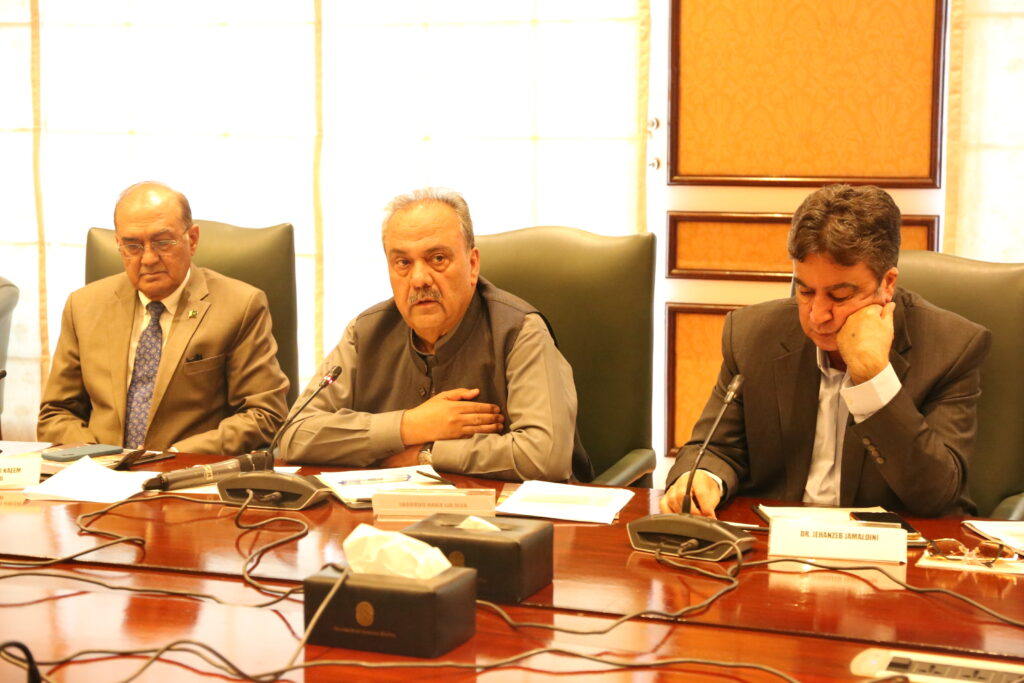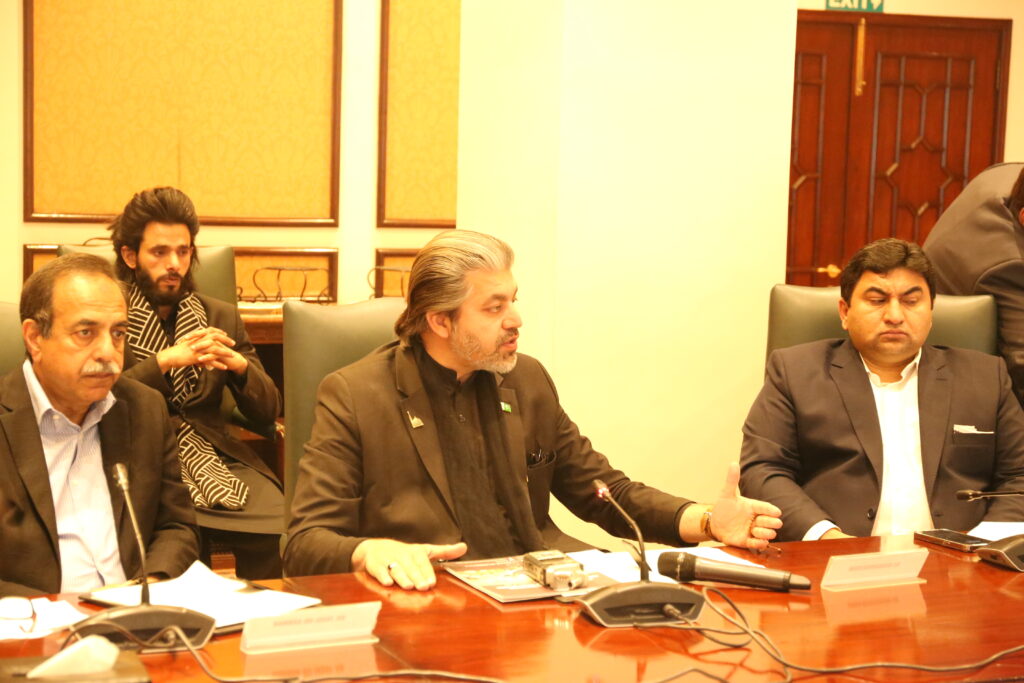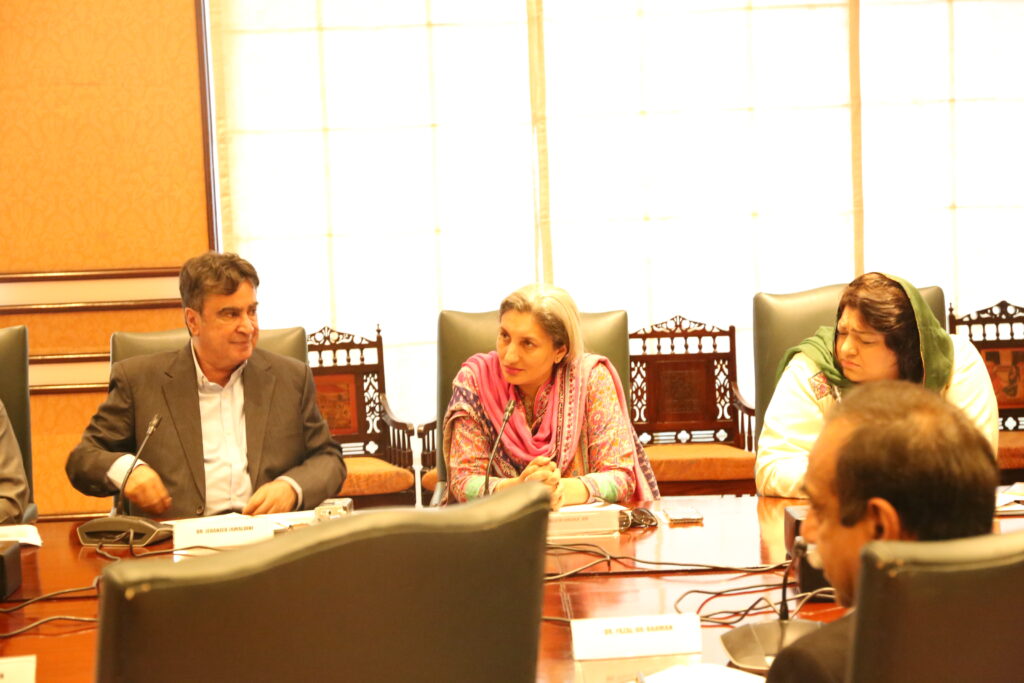PIPS CONSULTATION-12 ON AFGHAN PEACE & RECONCILIATION
Pak Institute for Peace Studies convened its 12th quarterly consultation on “Afghan peace and reconciliation: Pakistan’s interests and policy options” in Islamabad on March 15, 2024. The focal points of discussion encompassed “Pakistan’s Afghan policy puzzle: challenges and opportunities for the new government” and “The counterterrorism and counter-extremism challenges for the new federal and provincial governments.” Participants included lawmakers from national and provincial assemblies, diplomats, retired military officials, academics, journalists, policy analysts, and experts on Afghan affairs.
Pakistan’s Special Representative on Afghanistan Ambassador Asif Durrani highlighted that Pakistan’s recent attempt at peace talks with the banned Tehreek-e-Taliban Pakistan (TTP) failed because the militant group was neither ready to surrender nor willing to swear allegiance to the Constitution of Pakistan. The third primary reason for the deadlock in talks was that the group didn’t want to face the law for the heinous crimes it committed, including the attack on the Army Public School (APS) in Peshawar.
Ambassador Durrani said that Pakistan, during talks, had told the interim government in Kabul that the latter needed to make TTP surrender and disarm the group and detain its leadership. He clarified that “TTP is the red line for Pakistan”. He went on to say that TTP had 5,000 to 6,000 militants in its cadres taking shelter in Afghanistan, adding, “If we include their families, then the number goes up to 70,000.” He said that it was apparent the interim Afghan government could not afford the per-day expenditure of such a large number of people, which meant that someone else was paying for their upkeep. He said that Pakistan had evidence that “TTP is getting money from India through Afghan proxies”. Talking about the Pak-Afghan issue, the envoy said that Pakistan should implement the one-document regime on all border crossings with Afghanistan.
Former federal minister of state for parliamentary affairs and Pakistan Tehreek-e-Insaf (PTI) leader Ali Muhammad Khan said that Afghanistan should be given an opportunity to make its own decisions. He added that Pakistan could help its neighbor in peacebuilding. “We understand that opening of borders and trade with Afghanistan was in the interest of Pakistan,” he said. He highlighted that the huge potential of Khyber Pakhtunkhwa could be used in promoting trade with the neighboring country.
Former chief minister Balochistan and National Party leader Dr. Abdul Malik Baloch talked about parliamentary supremacy and said that the solution of all economic, political and foreign policy problems of Pakistan “only lies with the parliament.” He also called for bringing “real public representation” in Balochistan to solve problems of the province.
Political analyst and expert on Afghan affairs ex-senator Afrasiab Khattak viewed that the root cause of many problems of Pakistan, including its ailing economy and extremism, was its flawed policy for Afghanistan. “To come out of the crisis, Pakistan needs to change its Afghan policy and admit mistakes of the past,” he said, adding that interests of the West overwhelmed Pakistan’s internal and external policies.
Balochistan National Party-Mengal (BNP-M) leader ex-senator Dr. Jehanzeb Jamaldini underlined that formation of comprehensive foreign and internal policies should be the priority for any government. “There should be some roadmap to address long-standing issues of Pakistan,” he said and urged the need for a grand dialogue among political parties and improving Pak-Afghan trade ties.
Member of National Assembly Dr. Shaista Jadoon said that her party Pakistan Muslim League-N (PML-N) had always facilitated Afghanistan whenever it came to power. She said the new ruling coalition in the centre would look into all the matters concerning the Afghan policy.
Former defence secretary retired Lt. Gen. Naeem Khalid Lodhi said that Pakistan’s Afghan policy was under the influence of foreign elements, and it even failed to protect the country’s major interests due to the same reason. He said that Afghanistan was affecting Pakistan the most in terms of politics, economics and security.
Dr. Fazal-ur-Rahman, director of Pakistan Council on China in Islamabad, while commenting on China’s Afghan policy said it is a very consistent and objective-oriented policy. He further said that China would try not to let Afghanistan be used in the growing Sino-American strategic competition.
Dr. Shabana Fayyaz, Chairperson DSS at Quaid-e-Azam University in Islamabad, said “we always externalize our security perception, and feel that the threat is coming from Afghanistan, India, and now Iran as well”. However, there is a bit of truth in this as well as some overplay, she remarked.
Dr. Salma Malik, Associate Professor at Quaid-e-Azam University in Islamabad, said that people to people connectivity between Pakistan and Afghanistan needs to be improved for which the softest entry point is Afghan students studying in Pakistan. She also said that media connectivity between the two countries is important and deplored the existing media disconnectivity between the two countries which has led to a space for Indian media in Afghanistan.
The Managing Editor of Independent Urdu, Haroon Rashid, noted that there has been a decrease in attacks by the banned TTP recently, both during the election campaign and the post-election period. However, he underscored that the TTP remains active, focusing on organizational matters as usual. He cautioned against interpreting this lull as a sign of diminished threat.
Dr. Qamar Cheema, political and security analyst, said “we do not have out of the box solution, and want to go ahead in the same manner as we did in the past”. He urged the political class, and in particular the nationalist political parties, to come forward and take political ownership of the policies. He also advised the state to support the political class in doing so.
Shahzada Zulfiqar, a senior journalist based in Quetta and former president of PFUJ, criticized the government for lacking a coherent plan to engage the youth in Balochistan. He pointed out that due to the limited opportunities available to them, many young people are drawn towards drugs, criminal activities, and militancy.
Tahir Khan, a senior journalist and expert in Afghan affairs, cautioned that addressing the Afghanistan issue would pose significant challenges for the new government. To improve relations, he recommended that the government under Shahbaz’s leadership engage with individuals in Pakistan who could facilitate dialogue with the Afghan Taliban.
Riffatullah Orakzai, a journalist and security analyst from Peshawar, expressed skepticism about the ability of the newly formed PTI government to address security concerns in Khyber Pakhtunkhwa province. He based his argument on the party’s previous performance in handling security issues in the region.
Dr. Qibla Ayaz, Chairman of the Council of Islamic Ideology, concluded the discussion by highlighting a decline in institutionalism within the ranks of the Afghan Taliban. He noted that individualism has become more prominent among them, leading to inflexibility in their decisions, such as the ban on women’s education in Afghanistan.
Director PIPS, Muhammad Amir Rana, led the discussion as the moderator. At the outset, he emphasized the objective of the dialogue, which aimed to explore the diverse challenges and opportunities confronting the current federal and provincial administrations. The discussion primarily centered on nurturing constructive relations with Afghanistan and tackling the pervasive issues of terrorism and militancy in the region.




